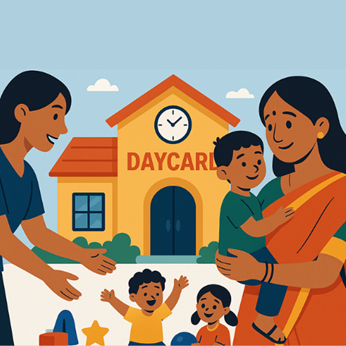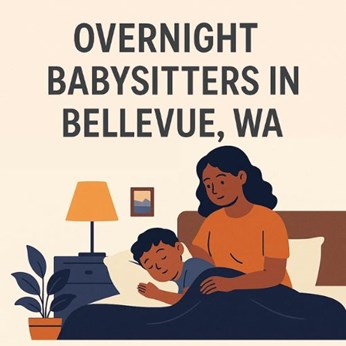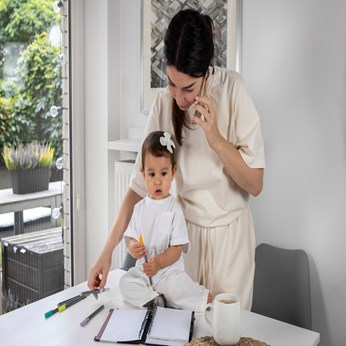Major milestones when your baby learns to talk (2-3 years)
Once your toddler is 2 years of age he may for a while struggle to get the appropriate word, but will soon learn and will start to especially know pronouns like I, me and you. However your toddler between the ages of 2 to 3 expands his/her vocabulary and is able to understand almost everything you tell him/her. He/she is able to put together nouns and verbs and form simple sentences as "I go now."
By the time your toddler turns 3 you should be able to communicate well with each other.
He/she may also oblige you when you ask her to do more than one thing as, "Get the book and put it on the bookshelf."
Some of the major milestones in talking that a baby reaches between the ages of 2 and 3 are:
Your baby acquires the vocabulary of 200 words by the time he/she is 30 months old. Your toddler would continue to learn new words. He/she will have a consistent word for almost everything by the time one is 3 years old.
Between the ages of 2 to 3 years he/she will be using more words that are not nouns but are pronouns or verbs. He/she will also start making 3 word sentences and will also develop in grammar skills.
Between the ages of 2 to 3 years your child learns to ask for something and get attention and stops using gestures to communicate.
It is advisable to note here that your baby by 30 months can easily be understood by his/her family.
He/she can understand and name parts of the body.
Your baby at 2 to 3 years is able to follow complex instructions like “Pick up your doll and bring it to me.”
You can help your baby to acquire talking skills before he/she is 3 years by:

Spend quality time speaking with your child when you are together; point out things to him/her, describe what you are doing, ask questions and sing songs. Your child learns to speak well by hearing you do so.
Next read to your child to expose him/her to new vocabulary, the way sentences are put together, and how stories flow. He/she will not only delight in the sound of your voice, but will also enjoy the stories and pictures.
Lastly listen when your child speaks to you; look at him and be responsive. He/she is more likely to speak up when one knows you are interested.
Take the next step toward your goals
Share your requirement and find the best care providers in your area
-
Looking for a caretaker’s job? Build your profile and get in touch with families in your vicinity.
-
Discover nannies, babysitters, cooks, housekeepers, pet sitters, and elder care under one roof.
-
Get all the support you need to run a successful care center.
-
Search for appropriate centers near you depending on your needs.
Care Corner Insights: Blog Library

Deep Cleaning Your House: Room-by-Room Checklist for a Thorough Clean
A sparkling clean home isn’t just about looks—it’s about health, comfort, and peace of mind. Whether you’re prepping for a festival, hosting guests, or just tired of the clutter, a deep clean can transform your space. But where do you start? Here’s a

What are Senior Apartments? Experts Explain Independent Living for Older Adults
As we age, our needs and lifestyles evolve—but one thing remains constant: the desire for independence. Senior apartments are designed precisely with this in mind, offering older adults a living arrangement that balances freedom with comfort, safety,

Baby Sleep Problems: What is Sleep Regression and How to Handle It
If you’re a parent, you know that baby sleep is one of the greatest mysteries of life. One day your little one is snoozing like an angel, and the next day they’re suddenly waking up every hour, fussing, or refusing to nap. Before you panic, there’s a

Daycare Admissions in Cary, NC for New NRI Families: Documents, Health Records, and Start Dates
Moving to a new country is exciting but also comes with many responsibilities—especially when it comes to finding the right daycare for your little one. For new NRI (Non-Resident Indian) families settling in Cary, NC, understanding the daycare

Overnight Babysitters in Bellevue, WA for Business-Travelling NRI Parents: Safety & Policies
For many NRI parents living in Bellevue, WA, frequent business trips are a reality. While traveling, one of the biggest concerns is ensuring your children are safe, cared for, and emotionally supported during overnight stays. Overnight babysitters ca

Indian Home-Style Cooks in Queens, NY: Tiffin-Style Weekly Meal Prep from Your Kitchen
Queens, NY, is home to one of the most diverse food cultures in the country, and Indian cuisine holds a special place among families looking for authentic, comforting meals. While restaurant takeout is convenient, nothing compares to the taste and nu

Baby Sleep Problems: What is Sleep Regression and How to Handle It
If you’re a parent, you know that baby sleep is one of the greatest mysteries of life. One day your little one is snoozing like an angel, and the next day they’re suddenly waking up every hour, fussing, or refusing to nap. Before you panic, there’s a

What is Validation Therapy? A New Approach to Dementia Care
Caring for loved ones with dementia is one of the most emotionally challenging journeys a family can face. Traditional methods often focus on correcting memory lapses or redirecting confused thoughts—but that can sometimes lead to frustration, stress

What is a Part-Time Nanny and Do You Need One
Parenting is a beautiful journey, but let’s be honest—it can also be exhausting! Between work deadlines, household chores, and family responsibilities, sometimes there just aren’t enough hours in a day. That’s where part-time nannies step in, offerin

Part-Time Housekeeper Hiring in Alpharetta, GA: Weekly Schedules, Pricing, and Must-Do Tasks
Keeping a home spotless while balancing work, family, and personal commitments can be overwhelming. For families and professionals in Alpharetta, GA, hiring a part-time housekeeper is one of the most practical solutions. Whether you need help once a